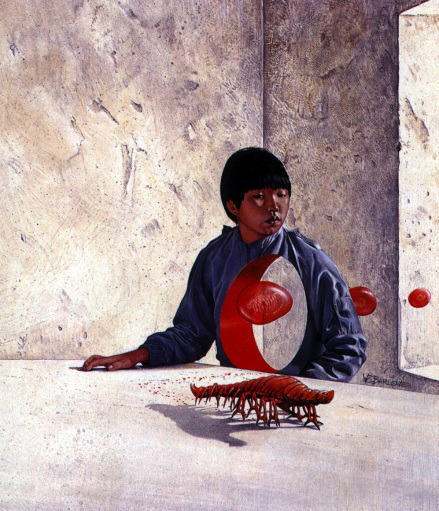Why not start a story with… oh, let’s say a day in the life of a poor family? That will give the writer some time to develop the characters before the first turn in the plot, and it won’t be devoid of conflict. The fact that this family is struggling to feed themselves should be gripping.
When a manuscript with this start was offered for critique, the question of the inciting incident came up. It made me think about whether such an incident was necessary, and if so, why.
First, imagine three scenarios:
1. Poor family struggles to earn enough to buy food.
2. Poor family which struggles to earn enough to buy food finds out they've won the lottery.
3. Dad gives up and walks out on poor family.
The first story can be made compelling. I love Anita Desai’s The Village By the Sea
Until something significant changes, the setting and characters and style have to hook the reader and carry the story. Whereas with the other two scenarios, there are inciting incidents. Things change, either for the better or for the worse.
I was hooked like a fish at the start of The Thorn Birds
The writer whose manuscript we were critiquing was concerned that if the story leaped into the major conflict, there would be no reason to care about the characters (and no chance to develop them). But the inciting incident doesn’t need to lead directly into the overarching plot. It can be a small conflict instead, and it can bring out the characters as well as their background.
To illustrate what I mean, here’s my critique of the start of The Thorn Birds
On December 8th, 1915, Meggie Cleary had her fourth birthday. Sets the tone: there’s a sense of 'this is how it all began'.
After the breakfast dishes were put away her mother silently thrust a brown paper parcel into her arms and ordered her outside. “Thrust” and “ordered” sound cold, at best—and from her mother, on her birthday? Her mother doesn’t want to watch her opening her gift? Wow. Also, thepresentparcel is wrapped in brown paper, not anything pretty.
So Meggie squatted down behind the gorse bush next to the front gate and tugged impatiently. She’s four years old, but she’s already so used to her mother’s cold commands that she doesn’t find them unusual. I’m getting a hint of the family dynamics here.
Her fingers were clumsy, the wrapping heavy; it smelled faintly of the Wahine general store, which told her that whatever lay inside the parcel had miraculously been bought, not homemade or donated. Sensory appeal here, and we see why the gift was wrapped in brown paper—the family is poor.
All that information in one paragraph at the start. Plus, after reading that I had to keep going, to see what Meggie got for her birthday—and what her family is like, and why she was given something new. The rest of the chapter unfolds with lots of description of a typical day for the Cleary family, but because I was hooked (and because it was a well-written slice of life in the past), I enjoyed reading that. But what I remember most is the inciting incident.
Tweet









